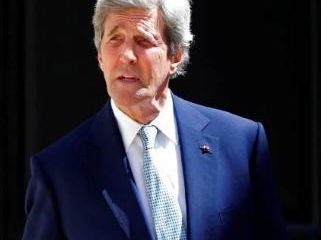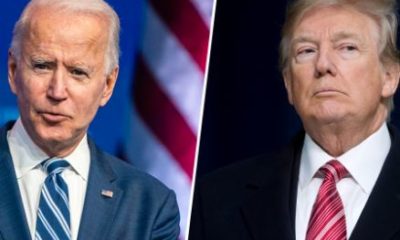World
South Sudan political solution a must: Top UN peacekeeper

United Nations: The top UN peacekeeping official has called on the international community to give priority to finding a political solution to the crisis in South Sudan where Indian peacekeepers have come under crossfire and a colonel was injured amid a worsening situation.
“I have to regret that indeed a political solution is not making any progress,” Herve Ladsus, the Under Secretary General for Peacekeeping, told reporters here Friday. “There is really the need for the international community to take the measure of the drama unfolding now for 18 months that made tens of thousands of victims and again with no political perspective in sight.”
Finding a political solution “is a critical issue that the people should focus on more,” he added. “The priority should be more than ever to finding a political solution to this drama.”
The battle lines are drawn between the forces loyal to President Salva Kiir Mayardit and supporters of former vice president Riek Machar Teny of the Sudan People’s Liberation Movement in Opposition (SPLM-IO).
Mediation efforts of the seven-nation East African organisation, Intergovernmental Authority on Development (IGAD) has so far been unsuccessful and earlier this month it even admitted it was “deeply frustrated.”
Ladsus attributed to the approaching rainy season the recent intensification in the fighting in which the Indian colonel was injured by crossfire at a camp in Malakel.
“What we are seeing, especially these days, in South Sudan is extremely sad,” he said. “It is getting worse right now because it is just the beginning of the rainy season and every side is trying to consolidate or further establish its positions.”
He said that once the rains set in travel would become impossible and things would settle down.
In a high-level staff change, Secretary-General Ban Ki-moon appointed Friday Eugene Owusu of Ghana as his Deputy Special Representative in the United Nations Mission in South Sudan (UNMISS), succeeding Toby Lanzer of Britain, who has moved to post in the Sahel.
Asked at the press conference about the UN Military Observer Group in India and Pakistan (UNMOGIP) set up to monitor the ceasefire in Kashmir, Ladsus said, “It is indeed one of the more discreet operations, but I think it is fulfilling its role in Kashmir area under difficult circumstances.”
“The mission was established by the General Assembly, so it gathers, may be, little less attention,” he added.
India, however, maintains that the UNMOGIP that was set up in 1949 has “outlived its mandate” and last year it asked the mission to move out of the building it was given rent-free.
Major General Delali Johnson Sakyi of Ghana heads the group, which has 42 military observers.
World
Lockdowns in China Force Urban Communities to Defy Censorship and Vent Frustration Online

Shanghai’s rich middle class is leading a wave of online dissent over the strict and prolonged lockdowns imposed in various parts of the country. Chinese internet censorship is struggling as patience is wearing thin in many urban centers, coming up with creative forms of online protests.
Social Media Posts Revealing Lockdown Tension in Shanghai
Drawn-out lockdowns are nothing new in China as authorities insist with the nation’s zero-Covid policy since the start of the pandemic. Currently over This time around, however, metropolitan areas like Shanghai are increasingly difficult to keep quiet, given that its more than 25 million residents have seen weeks of total isolation along with food shortages and many other service interruptions.
Dozens of towns and reportedly over 300 million Chinese citizens have been affected by lockdowns of different severity. As expected, urban netizens have been most outspoken over their difficulties by finding creative ways to get around state censorship and bans placed on topics, news comments and spontaneous campaigns.
Shanghai residents have been using mobile proxies and hijacking seemingly unrelated hashtags to talk about healthcare issues, delivery failures and the overall severity of their situation. The “positive energy” that the Chinese government wants to transmit during the recent prolonged series of lockdowns does not come naturally to those counting food supplies and online censors are working hard to filter words, trending topics and undesired social media sharing.
WeChat groups and message threads are under constant monitoring. Posts questioning the zero-Covid approach have been quickly deleted, including by leading Chinese health experts like Dr. Zhong Nanshan. Video footage is soon censored and protests and investigations are quickly made to disappear.
Where this has not worked, officials have exposed banners with warnings and outright threats like “watch your own mouth or face punishment”, while drones have been patrolling the city skies. Yet, if anything, this has led to further tensions and unspoken confrontation with Shanghai’s educated and affluent middle class.
Creative Online Solutions Harnessing Civic Energy
Announcements by Chinese social media that they would be publishing the IP addresses of users who “spread rumors” have not helped either. Tech industry research has shown that much of Asia’s tech-savvy population has a habit of using mobile proxies and other privacy tools, quickly finding workarounds to browse the internet freely and talk to the world about the hottest topics.
The sheer volume of forbidden posts is already a challenge for the very censorship system, experts explain. Unable to track all trending hashtags, state workers overlook topics that speak about the US, Ukraine or other popular news. Linking human rights elsewhere to their situation, Chinese online dissidents establish their informal channels and “hijack” the conversation to share personal or publicly relevant information about the Covid suppression in their town.
Sarcastic and satirical posts still dominate. Others hope to evade the censors by replacing words from famous poems or the national anthem. One thing is certain – social media, when harnessed with the right creativity, has proven its ability to mount pressure on the government in even some of the most strictly controlled tech environments like China.























